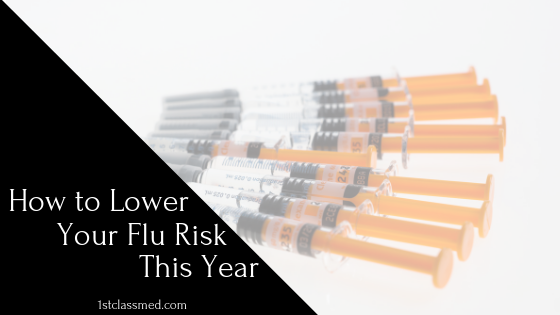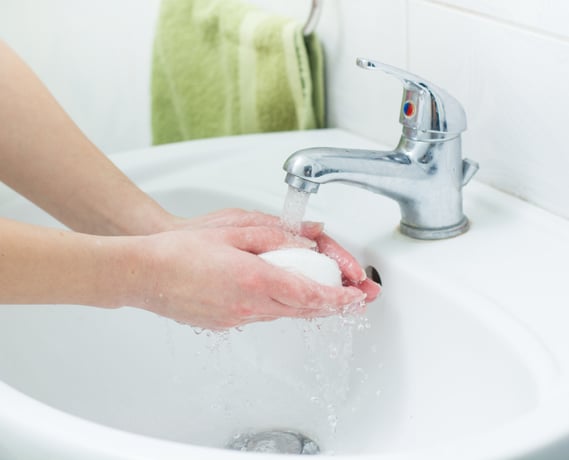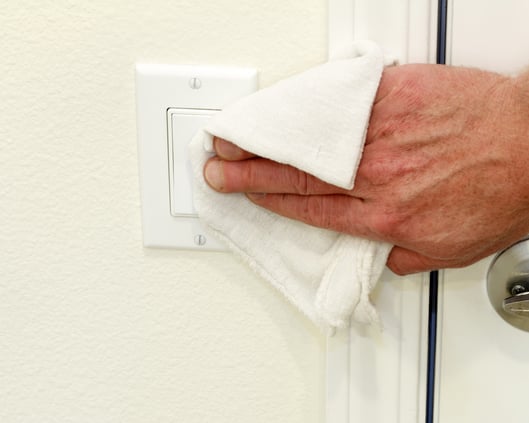
As the holidays are approaching and family is coming to visit this is the worst time of year to get sick.
But it is also flu season, so there are more germs being spread and increasing your likelihood of getting sick.
Luckily, there are some precautions you can take to prevent yourself from catching the flu and allow you to enjoy family time and the upcoming holidays.
Flu Shot
A logical way to prevent yourself from getting sick from the flu is to get a flu shot.
It helps your body fight off any flu viruses, so you don’t get sick for a few weeks during the holidays.
There are different forms of the flu shot, the shot, a nasal spray and a needle-less injection.
Your doctor will know which shot will be best for you and your health.
Wash Your Hands
Though frequently washing your hands can cause them to get very dry, it can also help keep germs off of your hands.
Key times to wash your hands is before, during and after food preparation, before eating foods, before and after you are in contact with someone who is sick, before and after treating a wound, after blowing your nose, coughing or sneezing, after using the restroom, after changing diapers or cleaning up after a child who has used the restroom, after touching an animal, animal feed or animal waste, and after touching garbage.
During flu season, washing your hands should occur more often, after you touch anything in public (door handles, railings, etc) and if you have someone sneeze or cough near you.
Not only is washing your hands often important, it is also important to wash your hands correctly.
Start by getting your hands wet with running water and then apply soap.
Rub your hands together with the soap, don’t forget until your nails, between your fingers and the back of your hands, and make sure to wash your hands for at least 20 seconds.
Rinse your hands under clean, running water and then dry your hands with a clean towel or air dryer.

Hand Sanitizer
Hand sanitizer is the next best thing to washing your hands but should never replace washing your hands if you have the option.
When using hand sanitizer, use at least 60% alcohol hand sanitizer to make sure you are killing as many germs as you can.
Do Not Touch Your Eyes, Mouth & Nose
Germs spread most often from our hands, as we often touch our eyes mouth and nose, allowing us to spread our germs.
We also get germs from touching things and then touching our mouths and noses.
Not only is washing hands important but avoiding touching your face can prevent the germs from getting anywhere that can quickly get into your system.
Avoid Large Crowds
Flu season is commonly between October and April, with its highest number of individuals being diagnosed with the flu between November and March, making the “peak” of the season.
This time is important to avoid crowds as that is where many germs will be, online shopping for the holidays may be your new best friend.
Not only can it keep you from getting sick but you don't have to deal with the stress of in-store shopping.
Clean Surfaces (Counter Tops)
Though it may seem like your home should be safe from germs, if you’re not sick then your home must be clean, right?
Sadly that isn't the case for germs, as they can hide anywhere and get you sick even when no one in your home is sick.
They often get into your home without you even knowing it, making it vital to clean your home often during flu season.
Cleaning the counter tops in your home can help ride your home of germs that may have come in.
Germs are often found in the kitchen in bathroom, as that is where we make the most contact with our mouths, noses and hands.
Cooking in the kitchen can require prep work to be done on the counter tops, exposing your food and you to germs that could be waiting there.
It is important to clean the counter tops before and after you cook in order to prevent any germs from hanging around.
Handles, Light Switches & Door Knobs
We often touch door knobs, cabinet handles and light switches in our everyday lives, but they are also most likely to be covered in germs.
Cleaning these places are vital, as they are common spots for households to touch and that can spread between housemates and families.

Stay Home When Sick (At least 24 hours after fever breaks)
You can be the cleanest person in the world but can still get the flu, so if you do, make sure to stay home.
Though you may not want to miss work, or a family get together, it is important to stay home and away from others for 24 after your fever breaks.
This helps prevent your friends and family from getting the virus from you and allows you to fully recover before you go back to work.
Avoid Close Contact
When you are in close quarters with others, germs are easily spreadable.
During flu season do what you can to keep your distance from others, stay back from the person in front of you in line, try to keep some distance between anyone you are holding a conversation with.
Taking a few steps backwards can help you avoid getting sick and give others more personal space.
Cover Your Mouth & Nose
If you are sick, make sure to cover your mouth and nose when coughing and sneezing, as it can spread the germs to others.
This is important for everyone to do when they are sick or not, as some germs in your body don't effect you as you can be immune but can effect others.
Flu Antiviral Drugs
If you do get sick, it is important to get into the doctor quickly, as the flu can turn into a more serious illness if it isn't caught in time.
Your doctor will most likely prescribe antiviral drugs if you do have the flu, and if you haven't already, give you the flu shot.
Antiviral drugs are similar to antibiotics, but antibiotics fight off bacteria and antiviral fight off virus'.
Conclusion:
There are plenty of ways to avoid germs, but there is no guarantee that you won't get sick.
Do all that you can to prevent the flu, as it can be deadly if it is not caught and treated in time.
Speak with your doctor about everything you can do to prevent getting the flu and what will work best for your age.



